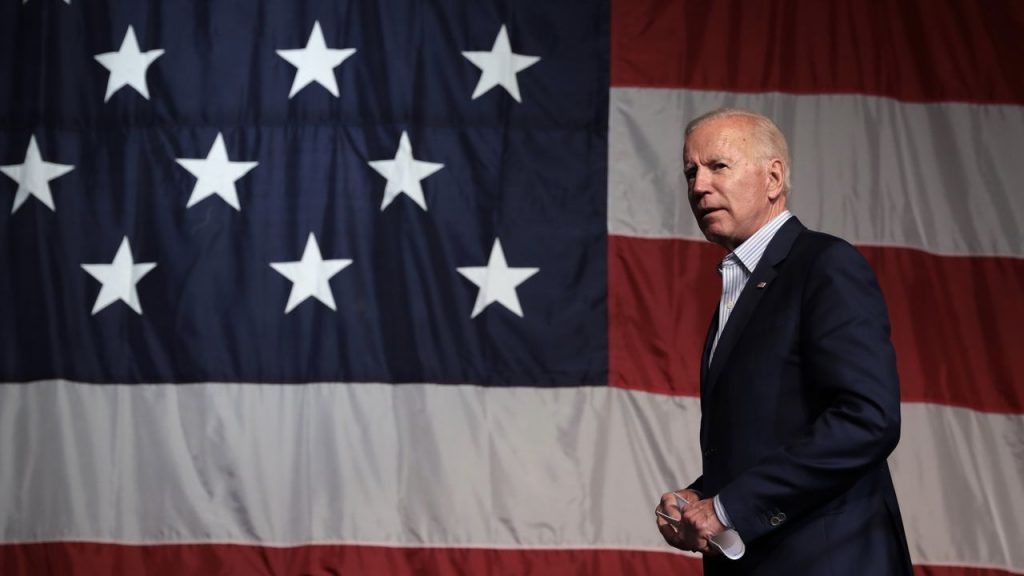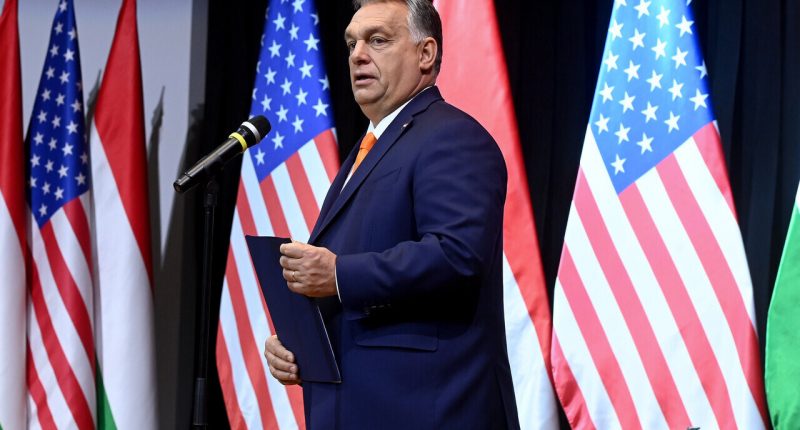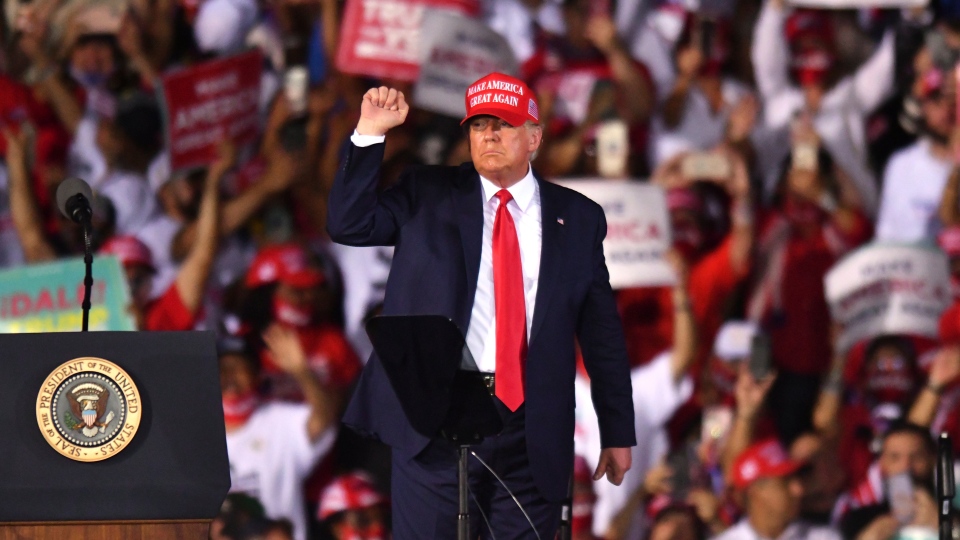In the latest edition of the CEA Talk podcast, András Simonyi, former Hungarian ambassador to the United States, talks about major challenges for the Biden administration, repairing of the EU-US relations, differences between the Hungarian and the Polish governments and the achievements of Donald Trump on the international stage.
Host: Zoltán Kész
The moment is ripe for a strong American leadership in the world,” the former diplomat says. He is very optimistic about the new US administration, in which Antony Blinken, a friend of him, was appointed Secretary of State. Mr Simonyi expects Joe Biden to progress on “some of the issues dividing the US society these days”, just like Covid and the social economic crisis hurting and dividing America.
Internationally, the US can be successful and occupy the leading position, but it needs to fix things at home first. “The US is as strong as its democratic institutions and economy,” he says.
China represents the major challenge for the West. The Asian giant is an economic and technological challenge, an “existential threat” that is becoming more aggressive with historic and global ambitions. It poses a threat to democracies across the world. “Only American leadership can assure that the West can withstand the pressure coming from China,” Mr Simonyi claims.
European Union-US relationship
The relations between the European Union and the United States, although not as bad as people think, will have to be fixed, but “it will not be easy.”

Europe has its own problems which translates into difficult attitudes towards the United States. “There are those who want to see the US regaining the leadership role, others would like to take an equal distance between the US and the East, including Russia and China,” Mr Simonyi says.
Nevertheless, he believes that common interests will drive the relations between the sides. The major challenges of the world – with democracy and climate change at the top of the agenda – can only be faced if the US and Europe “hold hands.” The former ambassador thinks America is ready for the “reinvention” of the EU-US relations. This offers several possibilities to Central and Eastern Europe.
Central and Eastern Europe
The Biden administration knows Central Europe very well. The President, a frequent visitor of Central Europe, has made several trips to Poland and Hungary. Still as a senator, he pushed for American involvement in former Yugoslavia. “He knows the region,” the diplomat argues.
On the top of Biden’s agenda is the strong support for democracy and the willingness to stop the backsliding of democracy in the “western family”. Therefore, Central and Eastern Europe will be important for the US in the upcoming years.

Secretary of State Antony Blinken is “very knowledgeable” about the region, however, he will differentiate between the countries. The time has come to look at Poland and Hungary differently. “I think it’s a good moment for America to realize why the issues pertaining to Poland are different than to Hungary,” he says.
Poland and Hungary
Strategically, Poland is an important player, Hungary is not. “The backsliding in Poland is bad but not catastrophic, in Hungary it is bad and catastrophic,” Mr Simonyi claims. Orbán only does things that are important to him.
“Jaroslaw Kaczynski deeply believes in what he is doing, but I don’t think Viktor Orbán seriously believes in what he is doing.”
The damage of democracy is of a different dimension in Poland than in Hungary. Also, there is a difference between the Polish and Hungarian leaderships on how they look at the world.
Poland is looking towards the West with the goal to have an extremely close and strong relationship to the US. This behavior is not only driven by security interests but by the understanding that technological progress and modernization are a western concept. Hungary, at the same time, is leaning more and more towards China and Russia.

“I’m very critical of the EU why they lump the two countries together. They were not able to understand that these are individual countries with distinct and different issues,” Mr Simonyi says.
There is a chance the Biden administration will look at the two countries separately as there will be a “growing attention”. Czechia, Slovakia and Romania will be part of this focus as well. With Victoria Nuland, who was nominated to serve as Under Secretary of State for Political Affairs, an “old fox” could enter the field.
Polexit and Huxit
“There is no chance these countries are leaving the EU,” Mr Simonyi is convinced.
“The German influence is oversized in Hungary, and Germany will not let Hungary to leave the European Union.“
Neither can the former ambassador imagine Poland wanting to leave the EU as it would be a “suicide”. “Poland will not be able to manage economically or from the point of view of the security.”
Hungarian opposition
“With regard to democracy and modernization, Hungary is ripe for change,” he says.
The key is that the “overwhelming majority” of Hungarians are looking towards the west and not the east. The solution for the current situation could lie in a “modern, western-looking” conservative party.
“I think many Hungarians voted for Fidesz, not because they were crazy about Orbán, but did so because they didn’t see other alternatives,” Mr Simonyi claims. In this regard, there are parallels between the US and Hungary as “not every American who voted for Trump was crazy about Trump.”
Orbán and Trump
Orbán was vocal about supporting Donald Trump, nevertheless it is important and good for Hungary to have a good relationship with any US administration. “I hope the relations between Orbán and the Biden administration will improve.”

He doesn’t expect the US to focus on Hungary, but on freedom and democracy. Nevertheless, in this context, “Hungary might be sooner or later one of the countries they will focus on”.
The US looks at Hungary as a “bad apple in the family”. Mr Simonyi, who stood next to Viktor Orbán when the Hungarian flag was raised at the NATO Headquarters the day when Hungary became member of the military alliance, is convinced that “deep inside” the Hungarian Prime Minister understands that he has to improve the relationship with the US. “He will have to do a lot to achieve that,” he argues.
Continuity of Trump’s foreign policy
The former diplomat is sure that there will be a continuity on a number of issues. The Middle East is one of them as “Trump achieved some breakthroughs there.”
Although Biden might not be enthusiastic about many of Benjamin Netanyahu’s policies, no one should expect the US to turn away from Israel.
He expects Trump’s China policy to be continued. “Finally someone put the foot in the door for China’s aggressive policies in the world”, Mr Simonyi says. “That’s a good thing.”

Photo credit: AP Photo, Jim Rassol
Despite the assumed friendship between Donald Trump and Vladimir Putin, US policy on Russia was “very tough” during the Trump years. “Don’t forget that the Magnitsky Act and the sanctions against Russia were introduced under a Trump administration.”
“It’s important not to throw out the policies that were right just because these were pursued by the Trump presidency,” he concludes.
Cover photo credit: Official White House Photo by David Lienemann

András Simonyi is a former Hungarian diplomat and author. He was the Hungarian ambassador to the United States between 2002 and 2007. He was Hungary’s first ambassador to the North Atlantic Treaty Organization. He is a Senior Fellow at the Atlantic Council of the United States and working at different projects for the George Washington University in Washington DC. He is an expert in transatlantic relations, energy and environment, as well as democracy. Sometimes he picks up his guitar and plays music. His Washington-based band is called the Coalition of the Willing. Twitter: @AndrasSimonyi
Photo credit: András Simonyi



